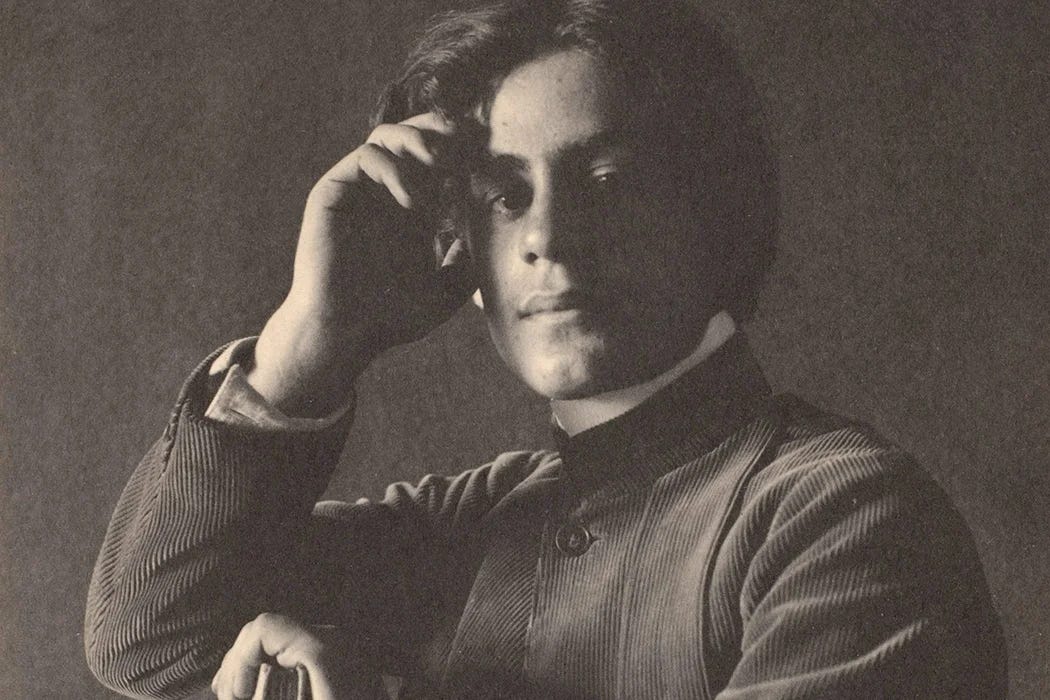My Friend by Kahlil Gibran is a parable published in 1918 and is taken from his book The Madman: His Parables and Poems. Kahlil Gibran was a distinguished Lebanese American writer, poet, and visual artist.
My friend, I am not what I seem. Seeming is but a garment I wear—a care-woven garment that protects me from thy questionings and thee from my negligence.
The “I” in me, my friend, dwells in the house of silence, and therein it shall remain for ever more, unperceived, unapproachable.
I would not have thee believe in what I say nor trust in what I do—for my words are naught but thy own thoughts in sound and my deeds thy own hopes in action.
When thou sayest, “The wind bloweth eastward,” I say, “Aye it doth blow eastward“; for I would not have thee know that my mind doth not dwell upon the wind but upon the sea.
Thou canst not understand my seafaring thoughts, nor would I have thee understand. I would be at sea alone.
When it is day with thee, my friend, it is night with me; yet even then I speak of the noontide that dances upon the hills and of the purple shadow that steals its way across the valley; for thou canst not hear the songs of my darkness nor see my wings beating against the stars—and I fain would not have thee hear or see. I would be with night alone.
When thou ascendest to thy Heaven I descend to my Hell—even then thou callest to me across the unbridgeable gulf, “My companion, my comrade,” and I call back to thee, “My comrade, my companion“—for I would not have thee see my Hell. The flame would burn thy eyesight and the smoke would crowd thy nostrils. And I love my Hell too well to have thee visit it. I would be in Hell alone.
Thou lovest Truth and Beauty and Righteousness; and I for thy sake say it is well and seemly to love these things. But in my heart I laught at thy love. Yet I would not have thee see my laughter. I would laugh alone.
My friend, thou art good and cautious and wise; nay, thou art perfect—and I, too, speak with thee wisely and cautiously. And yet I am mad. But I mask my madness. I would be mad alone.
My friend, thou art not my friend, but how shall I make thee understand? My path is not thy path, yet together we walk, hand in hand.
About Kahlil Gibran
Khalil Gibran (January 6, 1883 – April 10, 1931) was a Lebanese-American artist, poet, and writer of the New York Pen League.
He was born in the town of Bsharri in Mount Lebanon ,Ottoman Empire (north of modern-day Lebanon). As a young man Khalil emigrated with his family to the United States, where he studied art and began his literary career, writing in both English and Arabic. In the Arab world, Gibran is regarded as a literary and political rebel. His romantic style was at the heart of a renaissance in modern Arabic literature, especially prose poetry, breaking away from the classical school. In Lebanon, he is still celebrated as a literary hero.
He is chiefly known in the English-speaking world for his 1923 book The Prophet, an early example of inspirational fiction including a series of philosophical essays written in poetic English prose. The book sold well despite a cool critical reception, gaining popularity in the 1930s and again especially in the 1960s counterculture. Gibran is the third best-selling poet of all time, behind Shakespeare and Laozi.





